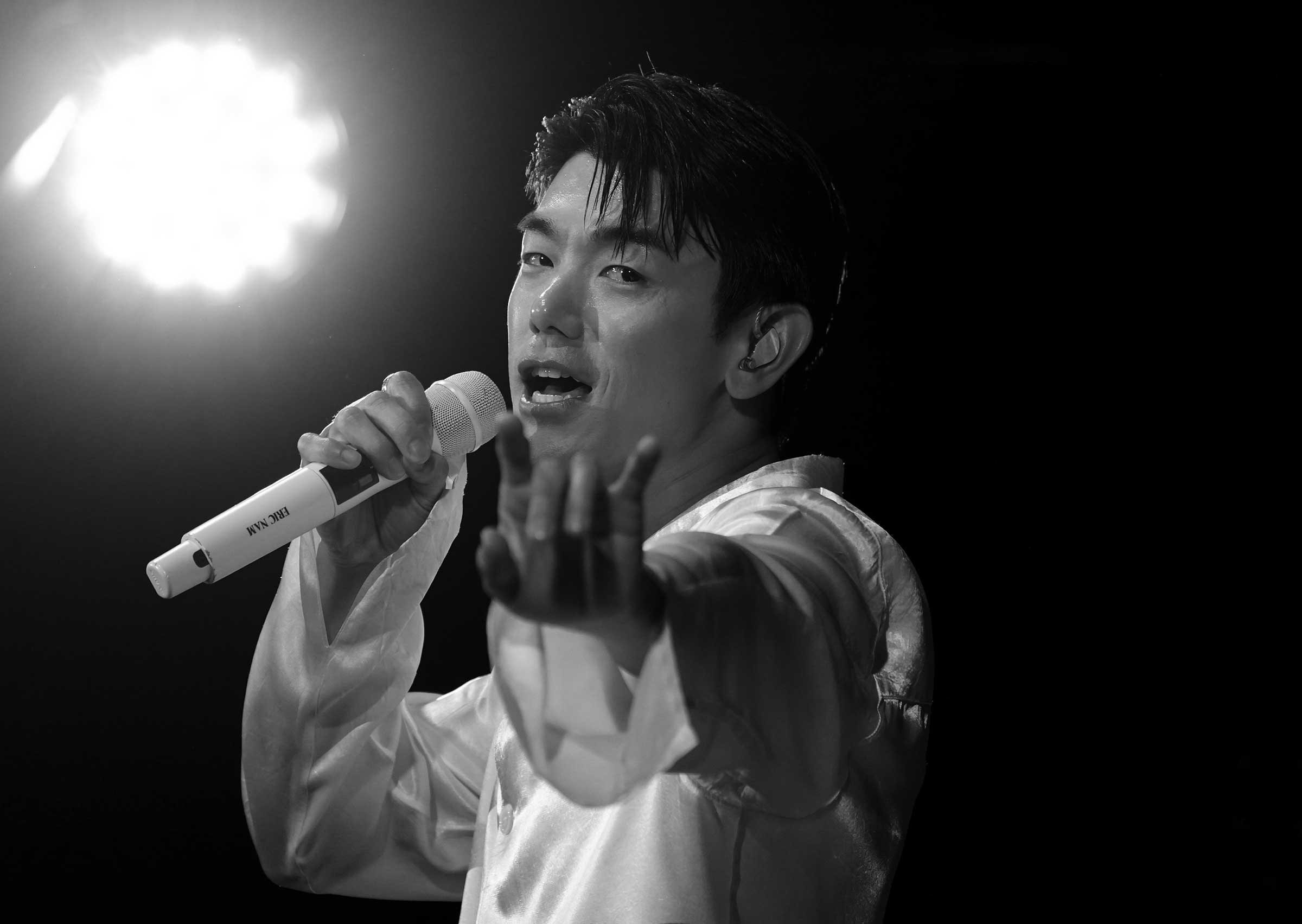
Eric Nam isn’t afraid to share his feelings. One of the songs on his newest album, released earlier this month, is entitled “I Wish I Wasn’t Me.” His music reveals a narrative of “existential crisis,” Nam tells TIME—an attempt, he says, at “unpacking” what it means to be happy and fulfilled. “We really run the full gamut in the spectrum of different moments and thoughts that I have had in the past year or so.”
The 34-year-old Atlanta native has spent more than a decade in South Korea’s entertainment scene doing a variety of things, from singing to hosting TV shows to even acting. But he’s mostly earned his reputation from conducting interviews with Hollywood A-listers and other international stars in which Nam treads conversations with intelligence, introspection, and empathy—inviting celebrities to be candid about their own struggles.
Seeing how vulnerable people are willing to be when given the right space, Nam, with his brothers Brian and Eddie, co-founded DIVE Studios in 2019, a podcast and media company focusing on the K-pop industry, which has long been plagued with mental health issues. Two years later, they created Mindset, a self-care app targeted at Gen-Zers to let them hear leading artists, like members of SEVENTEEN or songwriter Julia Michaels, talk openly about their personal efforts to stay mentally healthy.
The Nams’ community platform, which also does daily check-ins, has some 750,000 users, and fills a gap for many from communities that tend to avoid discussions about mental health. Government data from 2021 show some 16.4% of Asian-Americans aged 18 and up reported a mental illness in the year prior. “Asian-Americans are the least likely to seek mental health care. And when they do, it's often at a time of crisis where it's like far too late,” Nam laments.
Entertainment industries—particularly those in South Korea and Japan—have weathered their own mental health-related controversies in recent years. Nam recalls being discouraged from seeking help for his mental health concerns by his former music label, which was worried that Nam going public with his struggles could kill his career. “I think K-pop and Korea has gotten a lot better,” Nam says, pointing to more artists taking wellness breaks, but he adds that there’s still much to be done in creating safer spaces, including in fandoms—which are notoriously vicious. “How do we get to a point where we can collectively, as a culture, as people, just be nicer to each other and have more grace?”
Nam repeats the word “grace” several times throughout his conversation with TIME, in part it seems to quell his own anxieties about being a good mental health advocate. While mindful that his efforts are not the end-all solution, the K-pop star takes comfort in knowing he’s providing tools for people to embark on their own journey to wellness—no matter how rocky or patchy the start.
“Nobody has perfect mental health,” Nam says. “I have my ups and downs and I'm sure I have my flaws and faults, but I just have to give myself like the grace to say, ‘Well, at least you're talking about it and trying to improve the situation for so many people.’”
More Must-Reads from TIME
- Cybersecurity Experts Are Sounding the Alarm on DOGE
- Meet the 2025 Women of the Year
- The Harsh Truth About Disability Inclusion
- Why Do More Young Adults Have Cancer?
- Colman Domingo Leads With Radical Love
- How to Get Better at Doing Things Alone
- Michelle Zauner Stares Down the Darkness
Contact us at letters@time.com